I am having an issue where static destructors in a DLL are not getting called. The constructor is being called, but the destructor is not. I have a class like this in my DLL
struct DLLDestructorTest
{
int blah;
DLLDestructorTest()
{
blah = 2;
}
~DLLDestructorTest()
{
blah = 0;
}
};
DLLDestructorTest DLLDestructorTestObj;
I can put breakpoints in the constructor and the destructor and I can verify that the constructor breakpoint is hit and the destructor breakpoint is not. If I put an analogous chunk of code in my main.cpp file, I can verify that both the constructor and destructor will be called.
The call stack when the constructor is called is as follows.
mydll.dll!mydll::DLLDestructorTest::DLLDestructorTest() Line 1093 C++
mydll.dll!mydll::`dynamic initializer for 'DLLDestructorTestObj''() Line 1100 + 0x26 bytes C++
msvcr90d.dll!_initterm(void (void)* * pfbegin=0x000007fee7f521a8, void (void)* * pfend=0x000007fee7f52bf8) Line 903 C
mydll.dll!_CRT_INIT(void * hDllHandle=0x000007fee7920000, unsigned long dwReason=1, void * lpreserved=0x00000000002cf580) Line 323 C
mydll.dll!__DllMainCRTStartup(void * hDllHandle=0x000007fee7920000, unsigned long dwReason=1, void * lpreserved=0x00000000002cf580) Line 540 + 0x13 bytes C
mydll.dll!_DllMainCRTStartup(void * hDllHandle=0x000007fee7920000, unsigned long dwReason=1, void * lpreserved=0x00000000002cf580) Line 511 C
Which is basically as described on this webpage http://msdn.microsoft.com/en-us/library/988ye33t.aspx This page give details on how you the constructor is called, but no details as to how the destructor is called. In the following paragraph, it mentions details about which functions are called to invoke the constructor, which I can see in my callstack.
"The C/C++ run-time library code performs the DLL startup sequence, eliminating the need to link with a separate module as was necessary in Windows 3.x. Included in the C/C++ run-time library code is the DLL entry-point function called _DllMainCRTStartup. The _DllMainCRTStartup function does several things, including calling _CRT_INIT, which initializes the C/C++ run-time library and invokes C++ constructors on static, non-local variables. Without this function, the run-time library would be left in an uninitialized state. _CRT_INIT is available for both a statically linked CRT or linking to the CRT DLL Msvcr90.dll, from a user DLL."
I found one post here What happens to global variables declared in a DLL?, but this just seems to state that destructors will be called.
Any ideas as to why the destructors are not called would be appreciated.
Thanks, John Lawrie
Update
I have looked at this and have read up about DLLs but still don't have the solution. The DLL is linked implicitly with __declspec(dllexport). As far as I understand, there is nothing special that I should need to do to unload the DLL. It should unload automatically when the process terminates.
I made an very simple DLL by following the instructions on this page http://msdn.microsoft.com/en-us/library/ms235636(v=vs.90).aspx. I have no problems with the destructors getting called from this project.
I tried comparing what happens between this simple project and my current one. If I put the breakpoint in the simple test project DLL destructor, I can check out the call stack and see that the destructor is called from
crtdll.c line 447
crtdll.c line 560
crtdll.c line 510
In my current project, I can see that it is going into a different __DllMainCRTStartup function and begins executing at line 521. It does eventually get to the same line of line 447 which is just (*function_to_call)(); but my destructor does not get called.
In case it is useful, the DLL I'm calling is JUCE from juce.com
Thanks
